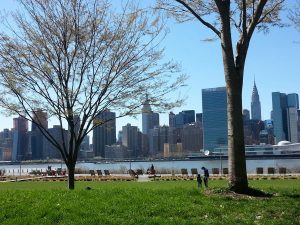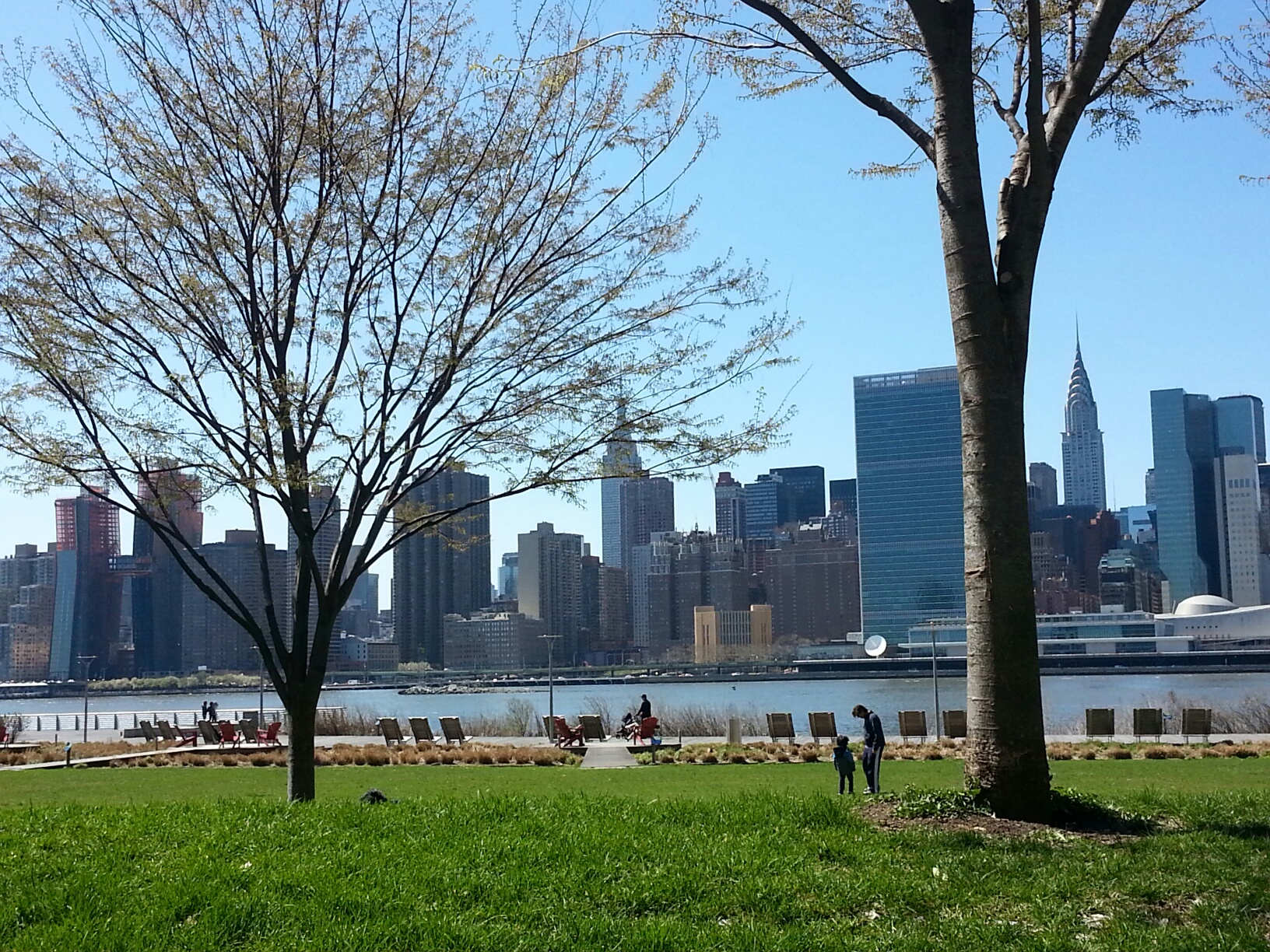As I’ve mentioned in my previous blogs about working for NYSERDA, New York City is going through a major energy transition. The State and City governments are both looking at ways to drastically change the energy landscape to include more distributed renewable sources of generation and to reduce energy usage, primarily in the building sector. It’s a great time to be working in this critical field and I have learned a lot from speaking with leaders in both governmental and non-governmental organizations (NGOs) who are leading the change in New York’s energy future.
In particular, I spoke with two leaders from prominent NGOs in the City to get insights into how their organizations are working to ensure that New York transitions into a more sustainable city.
Rory Christian – EDF

The first person I spoke with was Rory Christian who oversees activities related to clean energy in New York for the Environmental Defense Fund (EDF).
Rory said that EDF works to find market-based solutions backed by both science and economics to solve environmental problems. EDF uses an interdisciplinary approach, combining the skills and expertise of lawyers, economists, engineers, and policy professionals to identify sustainable solutions. This helps them to approach environmental problems with an understanding of how they will affect all stakeholders for good and for bad.
Rory cited examples like NYC’s Clean Heat program – a program EDF helped develop to eliminate the dirtiest heating fuels from NYC buildings. They were able to help by bringing market players together and giving them the tools they needed to succeed and by speaking with politicians to achieve legislative action. As a result of the program, New York City now has the cleanest air quality it’s had in 50 years.
 Laurie Kerr – Urban Green Council
Laurie Kerr – Urban Green Council
The second NGO leader I spoke with was Laurie Kerr who is the Policy Director at the Urban Green Council. The Urban Green Council is the New York City chapter of the U.S. Green Building Council, a national NGO with a mission to transform the building sector to a sustainable future.
The Urban Green Council does this by conducting research to inform policymakers of what the impacts of certain municipal legislations could be. By focusing exclusively on the building sector, they are able to provide expert advice from engineers, architects, and lawyers and understand the intricacies of how the building industry works.
Laurie said it is important to find the sweet spots of policies where it makes enough financial sense and is not a hardship to building owners. They look for what is impactful and cost effective, and not onerous. That’s where energy efficiency comes in.
One such law that the City developed was Local Law 88 which mandates that commercial buildings larger than 50,000 sq. ft. must have installed lighting that meets the energy code by 2025. Lighting technology has changed dramatically over the past decade, so this measure will result in significant energy and carbon reductions. Also lighting upgrades are typically one of the more cost effective measures, with paybacks in the two to three-year range. Moreover, the long timeline of 2025 allows building owners to make these upgrades when it is convenient – at the time of tenant turnover.
Management Styles
Rory works with a large team, both in New York and across the country, so delegation is a big part of his job. He says that when it comes to assigning tasks, he makes it a point to understand other’s roles along with their motivations and concerns. One rule he has for himself is to not ask anyone to do something that he wouldn’t do himself. He feels that it is important to understand how and why people do their jobs because they will ultimately help him achieve in the important work he is doing in New York.
Laurie says that keeping an open dialogue with colleagues and program directors can help the organization figure out its research needs and next steps going forward. By doing this, they can help find the best ways to make impactful change to business as usual within the industry and make sure that regulations are doable and cost-effective.
Mentorship
As I’ve found in my work experience both in New York and Vermont, mentorship is a crucial part of developing as a professional. I asked both Rory and Laurie about mentors they had early on in their careers who had an influence on their management styles and career trajectories.
Rory mentioned his first mentor at Keyspan who helped him develop professionally and socially. He said that his mentor helped him to see the direction his career could take, understanding that we have skills that defy description and our careers should not be limited to a title. Today, Rory encourages young professionals to know what their long-term career missions are and know what part of the world they want to make change in and what roles they will play to make that happen. He advises not to just take a job with a good title or to come in for a quick win, but to take the long view instead.
Laurie discussed the lessons learned from her mentor, Rick Agarwal who was the NYC Director of Long-term Planning and Sustainability. She said he brought vision, pragmatism, and political savvy to his position and that he insisted on getting the facts right before creating policy. His example is one that Laurie follows today as she continues her work in sustainable building policy.
